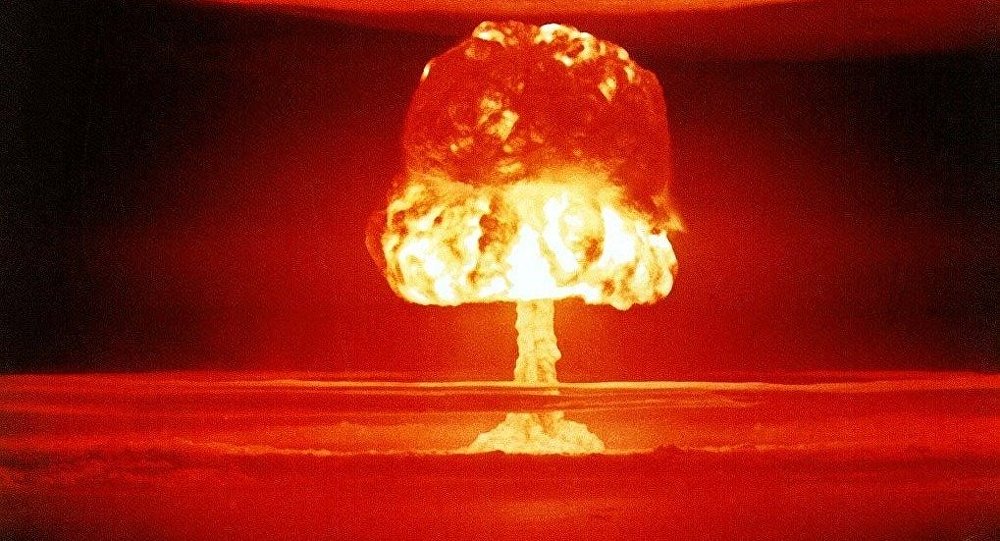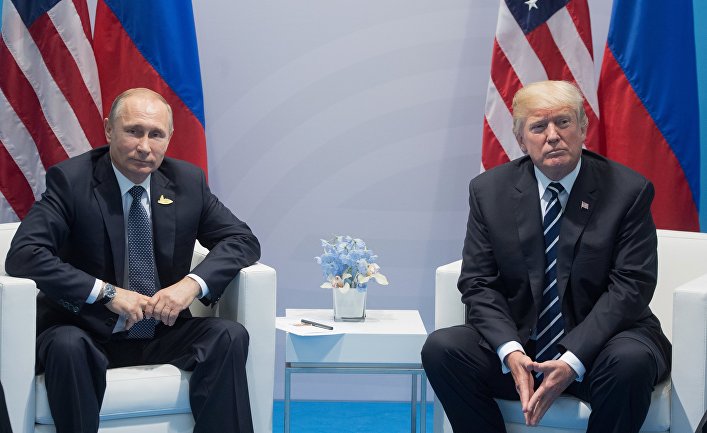
 Commenting on the new set of US punitive measures against Russia, which is waiting to be approved by President Trump, Russian political analyst Alexei Fenenko explained to Sputnik Radio in what particular spheres Moscow's response could be the most sensitive.
Commenting on the new set of US punitive measures against Russia, which is waiting to be approved by President Trump, Russian political analyst Alexei Fenenko explained to Sputnik Radio in what particular spheres Moscow's response could be the most sensitive.
The Russian Foreign Ministry suspended the use of all US Embassy warehouses and its compound in Moscow and also offered the US to cut down the number of its diplomatic staff in Russia to 455 people by September 1. Moreover, the ministry said that it reserves the reciprocal right to hit US interests in response to the US sanctions bill.
Sputnik Radio discussed the issue with political analyst Alexei Fenenko, an associate professor at the World Politics Department of the Moscow State University, who explained in what particular spheres Moscow's response could be the most sensitive.
"The American culture is the "Culture of Colt." If you don't respond, you are a loser. Russia has been very patient probably awaiting that the US will end up with mild punitive measures. But such a reaction seemed only to egg on the US," he told Sputnik.
He further said that now Russia has to respond to the move of the US, and the responsive measures could be related not only to the country's economy.
"It is not necessary to respond only economically. Russia could charge an "unacceptable price": each and every sanction minus one agreement on disarmament," the political analyst explained.
Alexei Fenenko cited as an example the Comprehensive Nuclear-Test-Ban Treaty (CTBT), which bans all nuclear explosions for both civilian and military purposes, in all environments, and which has set up an international monitoring system of the underground, the waters and the atmosphere for any sign of a nuclear explosion.
The US has invested billions of US dollars into this system. In case Russia withdraws from this agreement and completely cancels its cooperation with the US in this issue, all the billions spent by the US will be completely lost.Besides, Russia could bar the US from the deliveries of its low-enriched uranium, which is being used by at least one third of the US power plants, the political analyst suggested.
It might also completely close its skies for the transit of NATO cargo flights to Afghanistan, Fenenko concluded.
In an earlier comment on the issue, Nikolai Platoshkin, head of the International Relations Department at the Moscow University for the Humanities, also suggested how Russia could deliver its response to the new sanctions bill.
"The text of the bill itself contains a tip. It’s in section 237 which reads that the measures included in this act should not impede the activities of NASA [National Aeronautics and Space Administration]. So, let’s cut them off from space. Russia may stop transporting American astronauts to the ISS [International Space Station]. May they take a horse," Platoshkin said at a roundtable in Moscow.
According to Platoshkin, Russia also could withdraw its money invested in US Treasuries.
"Why not to place our money in German bonds, for example?" he said.Furthermore, Platoshkin said that Russia could stop exporting fertilizers to the US if the new sanctions are approved.
"We would not lose anything. Chinese companies could buy twice as much," he said, adding that in fact there is a wide range of possible responsive measures.
"Russia may prepare a report on where members of the US business elite prefer to keep their money. If you take a look at the FBI’s list of the top 10 most wanted tax fugitives, there are no Russians but there are Americans. Russia’s tax agencies could help their American colleagues," Platoshkin said.
The US restrictions target Russia's defense, intelligence, mining, shipping and railway industries, and restrict dealings with Russian banks and energy companies.On Friday, the White House announced that Donald Trump will sign the bill into law. Experts explained that Congress "has handcuffed" Trump on this issue. It passed the Russian sanctions bill with a veto-proof majority (419-3 in the house, and 98-to-2 in the Senate). By signing the bill, Trump avoids a potentially embarrassing moment where members of his own party will vote to override his decision.



_jpg/250px-ElbeDay1945_(NARA_ww2-121).jpg)







